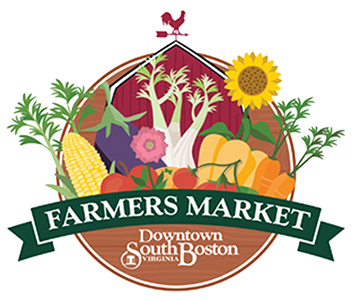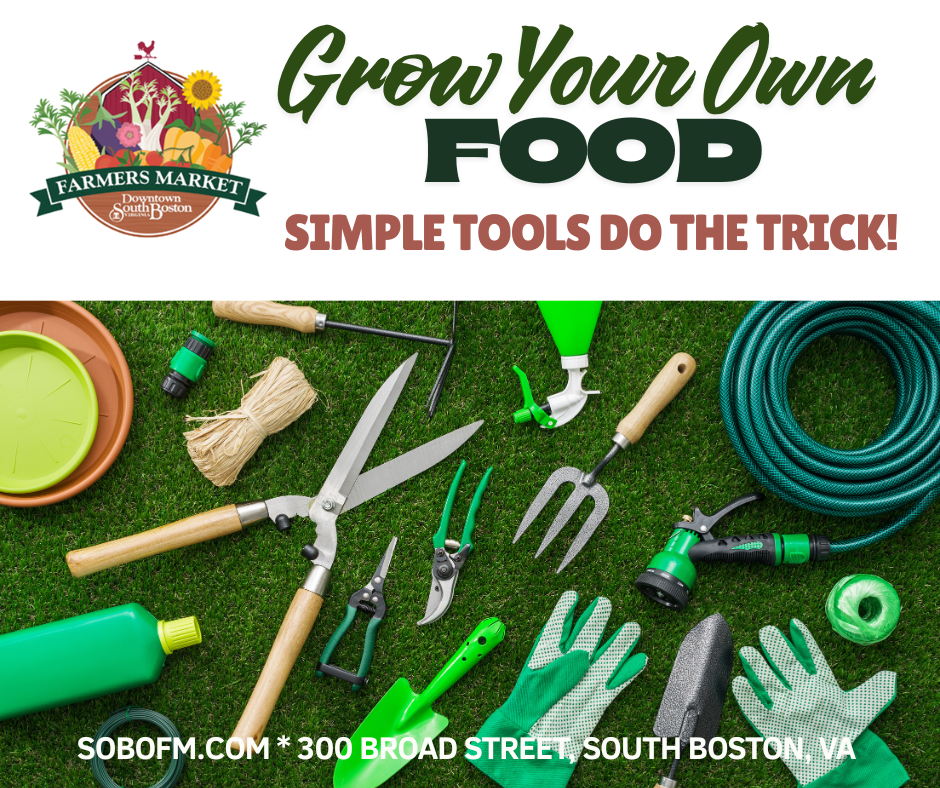Downtown South Boston Farmers Market
300 Broad Street
South Boston, VA 24592
Teaching children about gardening and growing food is a hands-on learning experience that teaches them a love for nature, patience, and responsibility. Planting and growing food and flowers allows them to see the magic of life and teaches them important skills and spurs creativity. Gardening teaches children about the environment, the importance of sustainability, and the rewards of their work. Watch kids blossom with their plants. Work with them to cultivate a lifelong love for gardening and help them learn new skills and values for a lifetime.
Gardening 101
Kids and adults enjoy gardening – and it’s easy to get started and grow your own food or flowers and plants with a few simple tips. Teaching kids to plant a garden is an important way of teaching them about nature, where food comes from, how it is grown, how it is harvested, and how it is prepared. The POP Club at the Downtown South Boston Farmers Market has hands-on activities and demonstrations throughout the year to help kids learn more about growing their own food and preparing it. So, if you or your children are ready to grow your own food or flowers, let’s dig in!
What You Need
Growing your own garden only requires a few simple tools. A shovel or spade for digging, a watering can or hose pipe, and a hoe will get you started. You may also want a wheelbarrow or wagon and gardening gloves if you plan a larger garden. Tools depend on the size of your garden but we recommend start small and then increase your garden over time.
What To Plant
Think about your garden and what you want to plant. Don’t plant more than you can eat or are willing to share so it doesn’t go to waste. In our area, you will find that tomatoes, cucumbers, carrots, peppers, squash, and a variety of herbs do well. These are good items to start with and you can expand your garden over time. If you decide to go with flowerpots, you may want to consider cherry tomatoes, herbs like basil and parsley, strawberries, and other small plants. Most herbs can grow in small pots on indoor windowsills.
Where To Plant Your Garden
Whether you’re planning a large-scale garden or a small, raised bed it’s important to make sure your garden gets lots of sunlight during the day. Vegetable gardens do best when they get 5-6 hours of direct sun.
Your Garden Structure
Some people prefer raised bed gardens which is a fancy name for a garden area that is usually in an enclosed frame and lifted slightly above the ground around it. It can even be in a wooden box or other container with drainage at the bottom. It helps with soil drainage, keeps the soil warmer for plant growth, and is easier to weed and keep it clean. It’s also easier to add compost or different types of soil if needed for your garden.
For kids, it’s also easy to simply grow a small garden by using flowerpots or other containers to get started. They’re easy for beginners to learn more about how plants grow and what they need to grow. Containers can be moved in different locations where they get the most benefit from the sun and rain. Kids love using pots for plants and this is a great place to start!
How To Size Your Garden
Starting too big can lead to a frustration. That’s why flowerpots or container gardening may be the place you want to begin. It’s important to start with a garden that is manageable so you don’t get discouraged. If you want an inground garden or raised bed, a 6 X 6 space is a good place to start – but smaller or bigger is your decision. Just make sure you have the resources, time, and energy to manage it.
Keep It Clean
When you start your garden, make sure it is free of any weeds or grass. Starting clean helps your plants grow and thrive. Raised beds and flowerpots usually start with fresh soil so weeds are not a problem – but keep in mind that filling a raised bed with soil can be a bit more costly than a garden you start directly in the ground or in a pot.
Pull weeds or grass from the garden often – if you wait until it grows deeper roots and spreads, it’s much harder to control and your garden won’t produce as well.
Gardening Help
For help starting your garden, visit the Downtown South Boston Farmers Market and talk with the market manager. And speak with local farmers at the market who have great tips and advice. Watch for POP Club events at the market that help kids grow their own food through demonstrations and activities. Make gardening fun and it will become a habit and a fun routine.
A GOOD PLACE FOR KIDS TO START: SALAD IN A BOX
- Any window box, bucket, basket, or other container with drainage at the bottom will do.
- Fill your container with potting soil.
- Plant a variety of lettuces and spinach in rows or just scattered over the top.
- Press into place and water lightly.
- Keep the soil moist.
- When the greens sprout, trim off a few leaves each day of different plants, to include in a salad. For kids who don’t like bitter tastes, butter lettuces are a good choice.
CONNECT THE DOTS
Help kids connect the dots by explaining how produce goes from the garden to the table. For example, when they grow cherry tomatoes, peppers, and basil, show them how it is used to make spaghetti sauce. If they grow pumpkins, take the seeds out and plant them to show them how the cycle works. Show them how to connect what they are doing today to something that happens later.
For more help and tips on growing your own food, visit the Downtown South Boston Farmers Market where you’ll meet many local farmers who are happy to help you!

